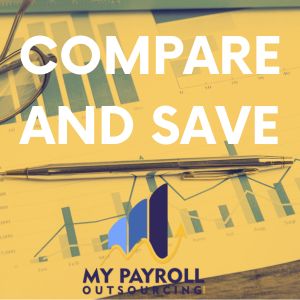
Payroll Service For Churches | Compare, Research, Save
Buyer’s Guide for Payroll Outsourcing for Churches
Managing a church can be as demanding as running a small business, especially when it comes to payroll administration. In many cases, outsourcing this task can help to free up resources, allowing church leaders to focus on their primary responsibilities. This guide will help you understand what to look for when seeking payroll outsourcing for your church.
1. Understanding the Benefits of Payroll Outsourcing
Before delving into the details, it’s important to understand why churches might consider outsourcing their payroll. Here are some potential advantages:
Cost-Effective
Maintaining an in-house payroll system can be expensive, particularly for smaller churches. Outsourcing can often prove more cost-effective, eliminating the need for specialized software or staff.
Time-Saving
Payroll management is time-consuming. By outsourcing, church staff can focus on pastoral duties and other important tasks, like community outreach and support.

Compliance
Staying up-to-date with federal, state, and local tax regulations can be daunting. Professional payroll service providers are experts in these areas, reducing the risk of penalties for non-compliance.
Accuracy
Payroll errors can lead to discontent and even legal issues. Outsourced professionals help ensure payroll accuracy.
2. Features to Look For in a Payroll Outsourcing Company
Once you’ve decided to outsource, consider these features when selecting a provider:
Church-Specific Experience
Look for providers that have experience in handling church payroll. They should understand specifics like housing allowances, tax exemptions, and clergy-specific tax rules.
Range of Services
While your immediate need may be payroll, your needs may grow over time. Consider providers who offer related services like human resources support, time tracking, benefits administration, etc.
Integration
The provider’s system should be able to integrate smoothly with your current software systems (like your accounting software or church management system).
Support
A good provider will offer excellent customer service. They should be accessible and provide clear, understandable answers to your questions.
Scalability
Choose a company that can grow with your church. If your congregation and employee base expand, your provider should be able to handle this without issue.
Security
The company should demonstrate robust data security measures to protect your employees’ information.
3. How to Get Started
After identifying potential providers, here’s how to proceed:
Request Quotes
Use a service like MyPayrollOutsourcing.com to request quotes from multiple providers. This will give you an idea of the pricing structure and help you compare different offers.
Check References and Reviews
Look at online reviews, ask for client references, and reach out to other churches who use their services.
Ask Questions
Don’t hesitate to ask questions about anything you’re unsure of. This is a crucial decision, and the provider should be patient and helpful.
Try a Demo
If available, request a demo of the provider’s system. This will give you a feel for its user interface and functionalities.
4. Making a Decision
Finally, remember that the cheapest option is not always the best. Evaluate each provider based on their experience, range of services, integration capabilities, support, scalability, and security, along with the cost. Make sure you’re comfortable with your choice and that the provider understands and can meet your church’s specific needs.
Payroll outsourcing may seem complex, but the right provider can simplify the process and deliver benefits to your church. Take your time, do your homework, and make the decision that’s right for your organization.

5. Implementation and Transition
Once you’ve selected your payroll provider, the next step is to implement the new system.
Tips to Ensure a Smooth Transition:
Communicate the Change: Inform your staff about the change, how it will affect them, and any actions they need to take. Open communication reduces anxiety and potential resistance to the change.
Assign a Point Person: Designate a staff member as the point person for the transition. This person should be well-versed in your church’s payroll specifics and will liaise with the payroll provider during setup and transition.
Data Transfer: Collaborate with your provider to transfer necessary data to the new system. This could include employee information, current pay structures, tax documents, and more.
Training: Ensure that staff who will interact with the new system receive thorough training. This may be provided by the payroll company or done in-house, depending on the complexity of the system.
Ongoing Maintenance and Evaluation
After the initial implementation, it’s important to maintain and regularly evaluate your payroll system:
Regular Updates: Work with the provider to ensure your system stays updated with current payroll laws and regulations.
Audit and Review: Periodically audit your payroll system to ensure accuracy and compliance. This can also help to identify potential areas of improvement.
Feedback: Regularly solicit feedback from your staff about the new system. Their input can help you identify issues that might need addressing.

Important Considerations for Churches
Finally, when considering payroll outsourcing for churches, it’s crucial to keep in mind a few church-specific factors:
Clergy Compensation: Churches have unique needs when it comes to payroll, including housing allowances, self-employment taxes for clergy, and other unique aspects of clergy compensation. Ensure that your provider is well-versed in these areas.
Tax-Exempt Status: Churches typically have tax-exempt status, which can impact payroll and employee benefits. Your provider should understand how to handle this.
Volunteer vs. Employee: Churches often have a mix of volunteers and employees. Payroll providers should understand the difference and be able to correctly classify and pay each group.
Privacy: Churches often handle sensitive personal information. Ensuring the chosen provider has robust security measures in place to protect this information is critical.
In conclusion, outsourcing your church’s payroll can offer many benefits, but the decision should be taken after thorough research and consideration. With careful planning, the right provider, and attention to church-specific needs, you can streamline your operations and ensure your staff is paid accurately and on time.